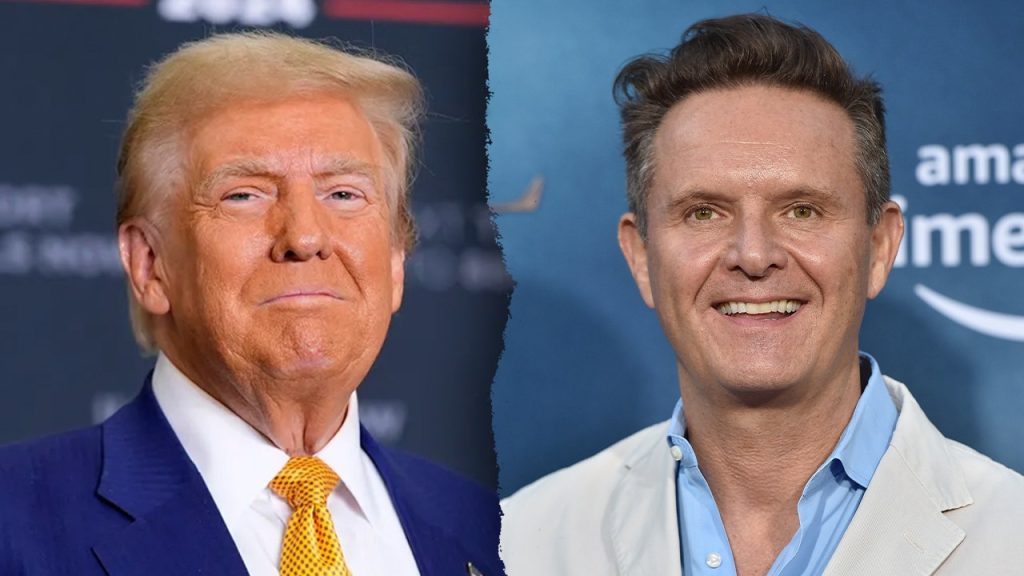The Unconventional Diplomacy of Mark Burnett: A Reality TV Maestro’s Foray into International Relations
President-elect Donald Trump’s recent nomination of Mark Burnett, the renowned creator of "The Apprentice" and other successful television programs, as the next U.S. special envoy to the United Kingdom has ignited a flurry of speculation and debate. This unexpected appointment raises questions about the evolving nature of diplomacy, the role of celebrity in international affairs, and the specific objectives driving this unconventional choice. Burnett’s extensive experience in the entertainment industry, coupled with his British-American heritage, presents a unique blend of attributes that could potentially reshape the dynamics of U.S.-U.K. relations. However, the appointment also raises concerns about the potential blurring of lines between entertainment and diplomacy, and the implications for the seriousness and effectiveness of international engagement.
Burnett’s career has been marked by a remarkable string of successes in the competitive world of television production. From the high-stakes boardroom drama of "The Apprentice" to the entrepreneurial pitches of "Shark Tank," and the survival challenges of "Survivor," Burnett has demonstrated a keen understanding of audience engagement and the power of compelling narratives. His ability to craft captivating content that resonates with a broad audience has earned him numerous accolades, including 13 Emmy Awards. Furthermore, his tenure as Chairman of MGM underscores his business acumen and leadership capabilities. These experiences, while seemingly distant from the realm of diplomacy, could potentially offer valuable insights into communication, negotiation, and cultural exchange.
The specific mandate of Burnett’s role as special envoy remains somewhat unclear. Special envoy positions are typically designed to address specific issues or missions, often of a temporary nature. However, Trump’s announcement did not elaborate on the precise objectives of Burnett’s appointment. He mentioned enhancing diplomatic relations, focusing on areas of mutual interest such as trade, investment opportunities, and cultural exchanges. This broad mandate leaves room for interpretation and speculation regarding the specific tasks Burnett will undertake and the impact he will seek to achieve.
The appointment of Burnett follows Trump’s earlier nomination of Warren A. Stephens as the U.S. ambassador to the United Kingdom. Stephens, a prominent figure in the financial services industry, brings a wealth of experience in business and philanthropy. His selection represents a more traditional approach to diplomatic appointments, drawing upon established expertise in finance and international relations. The simultaneous appointment of both Stephens and Burnett suggests a multi-pronged approach to engaging with the U.K., potentially leveraging both traditional diplomatic channels and the influence of the entertainment industry.
This dual approach raises intriguing questions about the interplay of conventional diplomacy and the emerging role of celebrity in international affairs. While the appointment of experienced diplomats remains crucial for navigating complex international negotiations and maintaining established protocols, the engagement of high-profile figures from the entertainment world can offer unique opportunities to reach broader audiences and foster cultural understanding. Burnett’s extensive network of contacts within the media and entertainment industry could potentially open new avenues for communication and collaboration between the U.S. and the U.K.
However, the appointment of a television producer to a diplomatic role also raises concerns about the potential trivialization of diplomacy. Critics argue that such appointments could undermine the seriousness and effectiveness of international engagement, transforming diplomatic missions into publicity stunts or entertainment ventures. The blurring of lines between entertainment and diplomacy could also lead to conflicts of interest, particularly given Burnett’s prior professional relationship with Trump. Maintaining the integrity and credibility of diplomatic processes is essential for fostering trust and achieving meaningful outcomes.
The appointment of Mark Burnett as special envoy to the United Kingdom represents a bold and unconventional move by President-elect Trump. While Burnett’s experience in the entertainment industry could potentially bring fresh perspectives and innovative approaches to diplomacy, the appointment also raises concerns about the potential blurring of lines between entertainment and international affairs. The success of this unconventional approach will ultimately depend on the specific objectives pursued, the effectiveness of Burnett’s engagement, and the ability to maintain the integrity and credibility of diplomatic processes. The unfolding of this unique diplomatic experiment will undoubtedly be closely watched by observers on both sides of the Atlantic.

